Crack Aptitude Tests for Every Company!
Be 100% Prepared for Placements Aptitude Tests!
Smart Prep for Placement Aptitude Tests | Adaptive Practice
✅ Smart Topic Selection

🤖 Personalized Question Practice
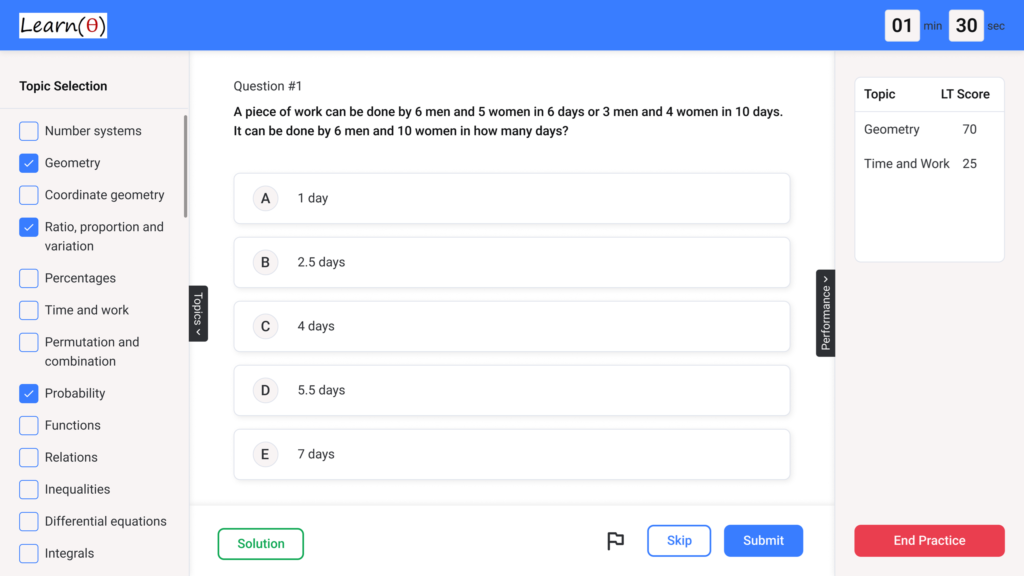
📊 Track Your Progress

Almost every company conducts Aptitude Tests as a Screening Round to select candidates with certain intellect and skill level. If you are an engineering fresher, chances are you will come across aptitude tests for both on campus and off campus recruitment processes. Even for Govt jobs, PSU roles and competitive exams, aptitude tests play an important role.
LearnTheta is one stop platform to prepare for placement aptitude tests. With adaptive practice and progress tracking, you will be able to clear tests much faster.
📽️ Check Our Demo
Supporting Students Across Institutions
Our goal is to reach every engineering student in the country and help them upskill in Aptitude. Our AI practice Platform is helping students across many top government and Private colleges:
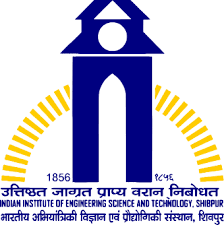






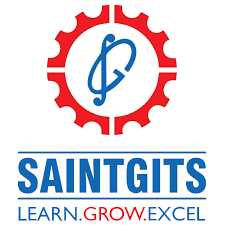

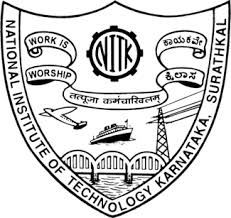

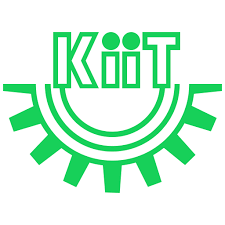

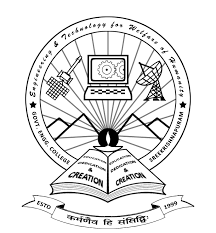
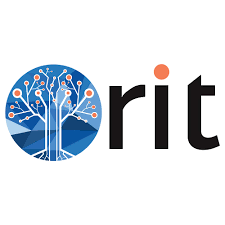
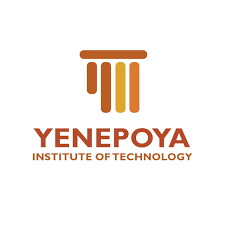
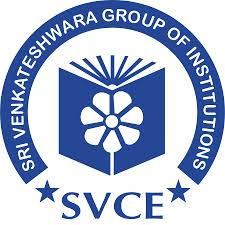
Our Learners Speak !
My college recommended R.S. Aggarwal for aptitude prep, but solving 400 questions across 30 chapters was overwhelming. I discovered LearnTheta through their webinar! The platform is user-friendly, and the variety of questions pushed me to improve faster. I felt confident and well-prepared for my placements. Highly recommended for anyone aiming to excel in aptitude tests!
Pranav, Nutan Institute of Engineering Talegaon
I really liked the clean, clutter-free interface. Practicing questions is seamless, and the simplicity of the design keeps the focus entirely on practicing without distractions
Kuldeep, NIT Karnataka
The performance page is my favorite feature! It’s rare to find a platform dedicated solely to aptitude preparation. You can practice individual topics first and then combine them for a combined practice. The system even pinpoints areas where you’re excelling or need improvement.
Shubham, Jaypee Noida
I loved the interface, especially how each question is timed, helping me track exactly how much time I spend on each question. The level of questions is really good, making it a great platform for practice 🙂
Ankita, VSSUT Burla
I was shocked to see that some companies are taking aptitude round even for lateral hiring of experienced developers. To quickly prepare for Aptitude, I subscribed to LearnTheta and it has helped me finally switch from Infosys
Ritesh, Ex-Infosys
I was not sure how an online platform could help with Aptitude, but this was a pleasant surprise! The questions cover everything. It feels like the system is made just for you, guiding you all the way. First time I felt confident with Placement aptitude preparation.
Aman, IIEST Shibpur
How to use LearnTheta?
The LearnTheta (LT) Score starts at 0 and grows as you practice, reflecting your readiness for aptitude tests. It updates with every attempt, correct answers raise your score and increase difficulty, while incorrect or skipped questions may lower it to target your weak areas. Aim to reach 70 in each topic by practicing consistently and solving questions carefully.
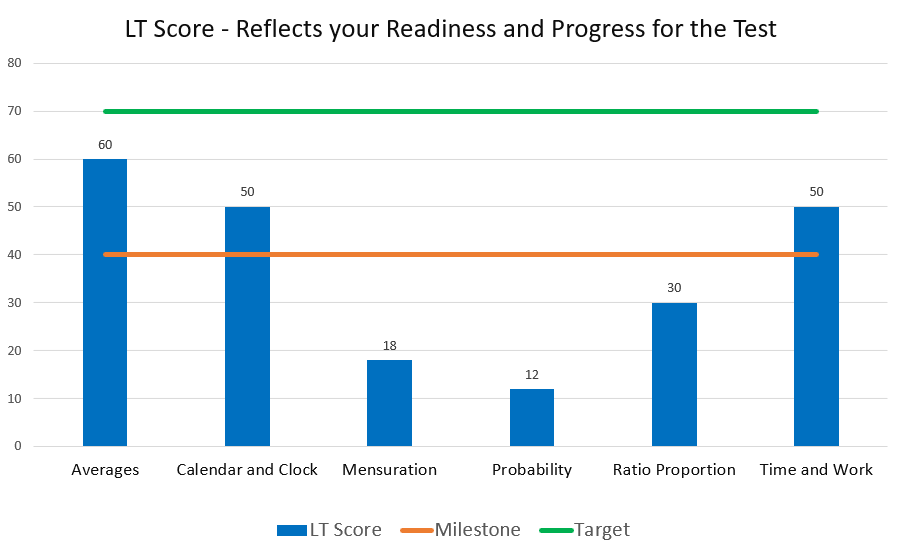
Placement Test is a screening process
70% of the companies focus on aptitude as the main screening criteria for further interview rounds. If you want to score high, it becomes imperative for you to be thorough with practice. With LearnTheta, you can do your aptitude prep online and nail your job selection.
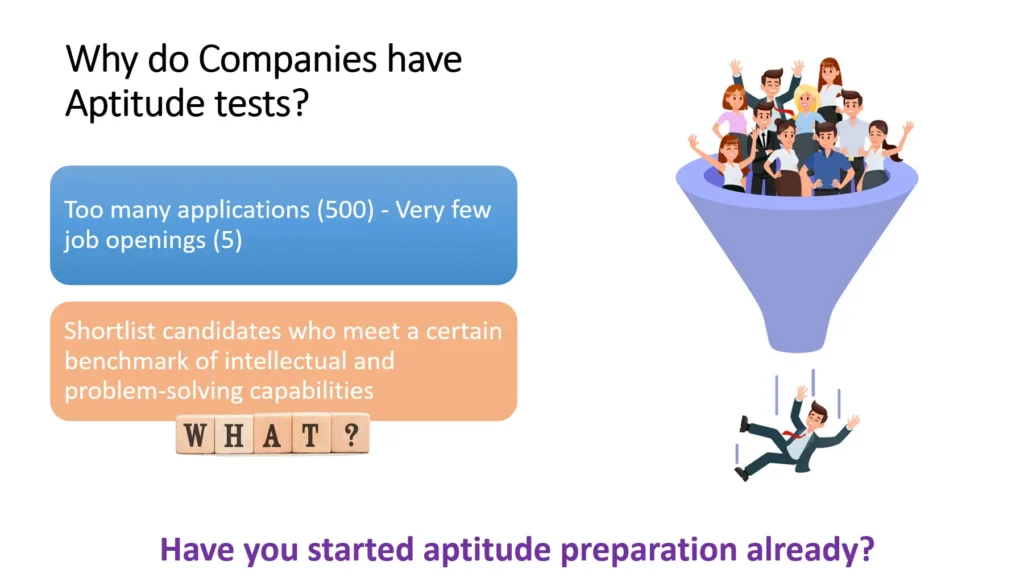
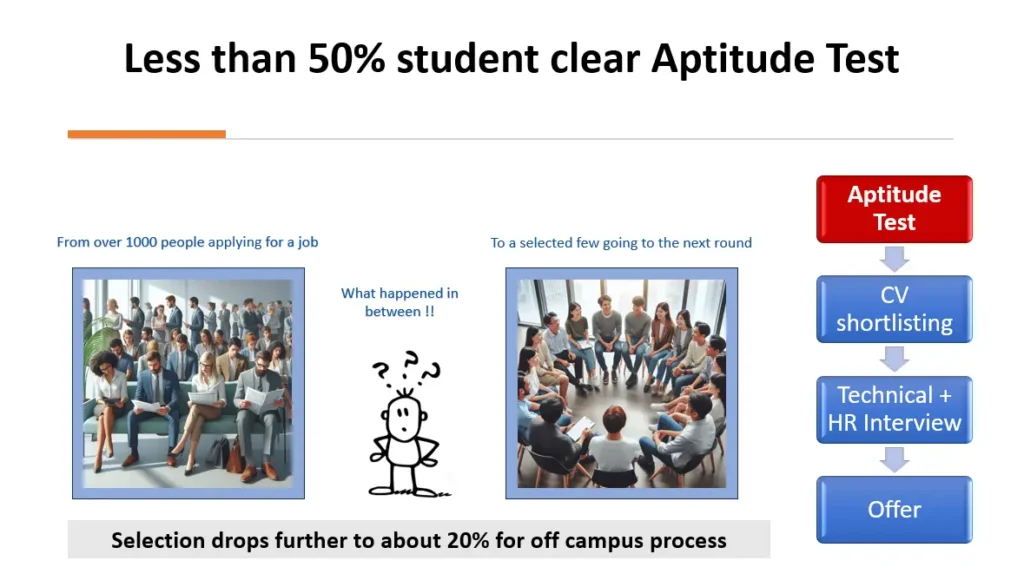
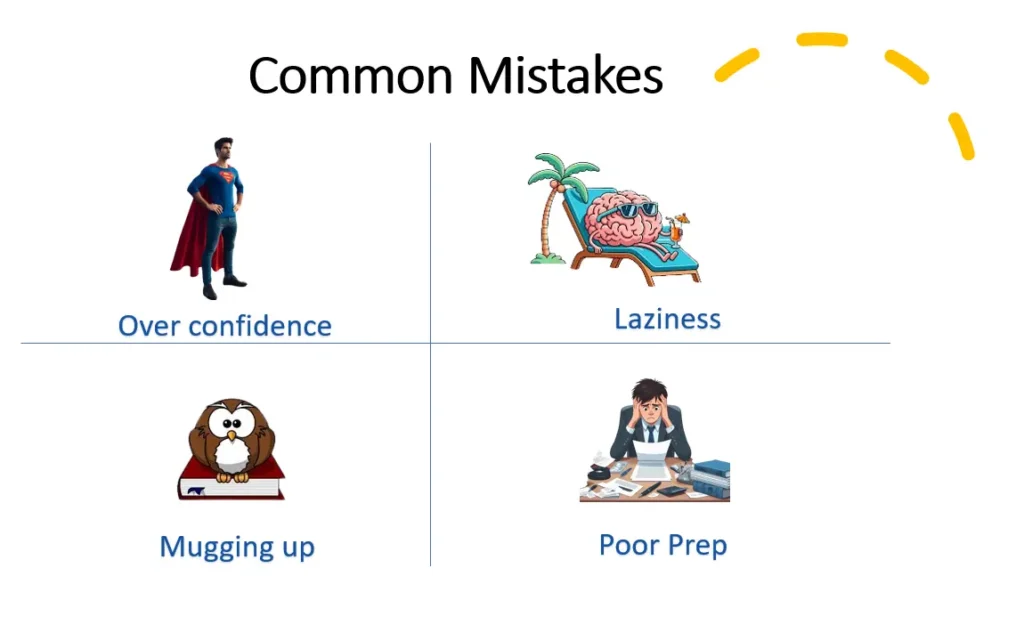
Aptitude Syllabus for Placements: List of Important Topics
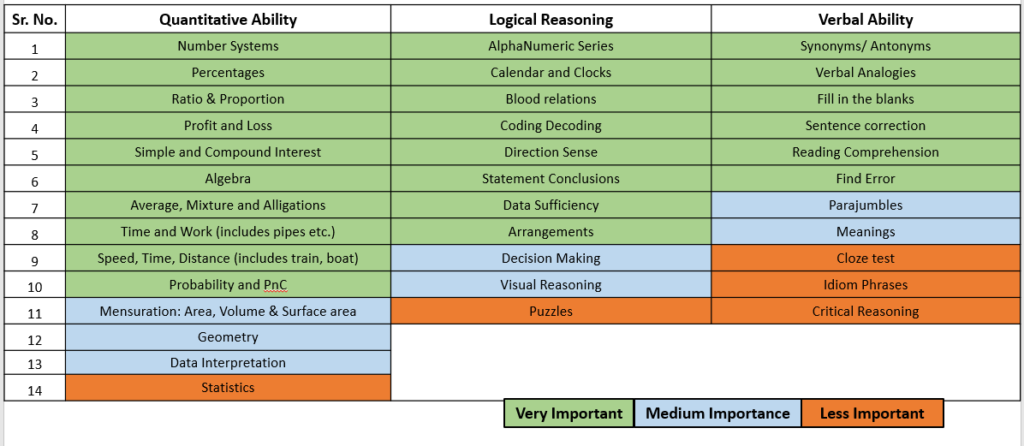
Practice Aptitude Questions on LearnTheta across all four main sections: Quantitative Reasoning, Logical Reasoning, Verbal Ability & Technical Round
Quantitative Ability
Logical Reasoning
Verbal Ability
Computer Fundamentals
- Computer Network
- DBMS
- DSA
- OOP
- Operating System
- C
- C++
- Java
- Python
- Sql
Syllabus across Companies and Preparation Tips
1. Do companies repeat questions from previous tests?
No, companies don’t repeat questions from past tests. They aim to assess your cognitive abilities and problem-solving skills, so repeating questions would defeat the purpose. Questions are supplied by various vendors from massive question banks, making it nearly impossible to predict specific questions. Anyone claiming otherwise is misleading you.
2. So should I go through previous year questions?
Yes, reviewing previous questions is useful to understand the types of questions, difficulty level, and frequently tested areas. However, it won’t guarantee that you’ll see the same questions. Success in aptitude tests depends on your understanding and practice of core topics. Strong fundamentals and practice make the difference, not memorizing past questions.
3. Company wise syllabus
This syllabus mapping is based on feedback from past candidates. While companies aren’t bound to specific topics, this map highlights where to focus more. Mastering one topic often helps with related ones (e.g., percentages aid in understanding ratios and averages). Notably, companies like TCS, ZS, and MuSigma tend to set slightly higher difficulty levels.
*In the given table, Y means “Yes”, it indicates a specific topic was tested in previous year papers
| TCS | Infosys | Accenture | Wipro | Cognizant | HCL | Tech Mahindra | |
|---|---|---|---|---|---|---|---|
| Section 1. Quant | |||||||
| Number System | Y | Y | Y | Y | Y | Y | |
| Ratio Proportion | Y | Y | Y | ||||
| Algebra | Y | Y | Y | Y | Y | ||
| Profit and Loss | Y | Y | Y | Y | Y | Y | |
| Compound Interest | Y | Y | Y | Y | |||
| Averages | Y | Y | Y | Y | Y | ||
| Percentage | Y | Y | Y | ||||
| Mensuration | Y | Y | Y | ||||
| PnC | Y | Y | Y | Y | Y | Y | |
| Probability | Y | Y | Y | Y | Y | Y | |
| Time and Work | Y | Y | Y | Y | Y | Y | |
| Speed, Time, Distance | Y | Y | Y | Y | Y | Y | |
| Section 2. Reasoning | TCS | Infosys | Accenture | Wipro | Cognizant | HCL | Tech Mahindra |
| AlphaNumeric Series | Y | Y | Y | Y | Y | Y | Y |
| Coding Decoding | Y | Y | Y | Y | Y | Y | |
| Blood Relations | Y | Y | Y | Y | Y | ||
| Direction Sense | Y | Y | Y | ||||
| Statement Conclusion | Y | Y | Y | Y | Y | ||
| Arrangements | Y | Y | Y | Y | Y | ||
| Data Sufficiency | Y | Y | Y | Y | |||
| Clock & Calendar | Y | Y | Y | Y | |||
| Section 3. Verbal | TCS | Infosys | Accenture | Wipro | Cognizant | HCL | Tech Mahindra |
| Sentence Correction | Y | Y | Y | Y | Y | Y | Y |
| Para Jumbles | Y | Y | Y | Y | Y | ||
| Fill in the blanks | Y | Y | Y | Y | Y | Y | Y |
| Synonyms Antonyms | Y | Y | Y | Y | Y | Y | |
| RC | Y | Y | Y | Y | Y | Y | Y |
| Verbal Analogy | Y | Y | Y | Y | Y |
Important articles for yoru reading:
Follow us on LinkedIn to stay updated on upcoming webinars, events and competitions. To get a daily Aptitude problem or to discuss aptitude related doubts. Join Our Telegram Channel
FAQs
Read FAQs here
What is a Placement Aptitude Test?
A placement aptitude test is an evaluation used by companies during campus placements to assess candidates’ problem-solving, reasoning, and critical thinking skills. These tests typically include sections like quantitative aptitude, logical reasoning, and verbal ability.
What types of questions are asked in Placement Aptitude Tests?
Placement aptitude tests generally include:
- Quantitative Ability: Questions on topics like percentages, probability, algebra, and number systems.
- Logical Reasoning: Questions on pattern recognition, puzzles, and data interpretation.
- Verbal Ability: Questions testing reading comprehension, grammar, and vocabulary.
How many questions are typically asked in a Placement Aptitude Test?
The number of questions in a placement aptitude test varies by company. However, most tests include 20-50 questions spread across different sections like quantitative reasoning, logical reasoning, and verbal ability which you need to solve within time limits.
What is the best way to practice aptitude for placements?
The best way to practice aptitude for placements is by using an adaptive learning platform like LearnTheta. It customizes questions based on your skill level and gives you real-time feedback on your progress, helping you improve faster. Regular, consistent practice is key to mastering aptitude questions.
Why is aptitude important for placements?
Aptitude tests are crucial because 70-80% companies use them as the first screening step in their hiring process. A strong performance in aptitude tests can increase your chances of progressing to the interview round, as most companies use these tests to assess fundamental skills like problem-solving and analytical thinking.
What is adaptive practice, and how does it help in aptitude test preparation?
Adaptive practice adjusts the difficulty level of the questions based on your performance. As you improve, the questions become more challenging, which helps you develop a deeper understanding of the concepts. This method ensures steady progress and prepares you for real-world placement aptitude tests more effectively.
How can I track my progress in aptitude preparation?
With LearnTheta, you can track your progress using the LT Score. This score updates in real-time as you solve questions, showing your level of mastery. The platform also provides insights into your strengths and areas where you need improvement, ensuring that you focus your efforts efficiently.
What is the LT Score, and how does it relate to placement readiness?
The LT Score is a dynamic performance indicator on LearnTheta that reflects your readiness for placement aptitude tests. As you practice:
- An LT Score of 40 indicates a solid grasp of the basics.
- A score of 50 means you’re applying concepts effectively.
- A score of 60 means you’re able to tackle challenging problems as well
- A score of 70 signals that you are fully prepared for placement-level aptitude questions
Can I practice placement aptitude questions online?
Yes, platforms like LearnTheta provide a vast collection of placement aptitude questions that you can practice online. You can access these questions anytime and anywhere, track your progress, and get personalized feedback, making it easier to prepare for placement tests.
When should I start preparing for placement aptitude tests?
It’s ideal to start preparing for placement aptitude tests as early as your 2nd or 3rd year of college. Early preparation gives you more time to practice, improve your skills, and build confidence before the placement season starts. Also if you are targeting other exams in future like CAT, GMAT, GRE, GATE, UPSC or even government exams, aptitude preparation will give you a solid base.
How do companies use aptitude tests during placements?
Companies use aptitude tests as a primary screening tool during the placement process. These tests help evaluate a candidate’s problem-solving and analytical abilities, which are essential for most job roles. A good score can significantly improve your chances of moving to the next round, such as technical or HR interviews.
What is LearnTheta’s Placement Aptitude Course?
LearnTheta’s Placement Aptitude Course is an advanced, AI-driven practice platform designed to prepare students for placement aptitude tests. It provides a range of practice questions, real-time performance analysis, and adaptive learning features to help students master essential skills and improve their test scores.
How long does it take to prepare for placement aptitude tests?
The time required to prepare for placement aptitude tests varies depending on your current skill level. On average, students spend 2-3 months preparing, but with LearnTheta’s adaptive learning and personalized feedback, you can speed up your progress and become placement-ready sooner.
Is LearnTheta’s course suitable for beginners in aptitude?
Absolutely! That’s the beauty of adaptive practice. System adjusts to your level and takes you all the way from beginner level to advance level.
Can I access LearnTheta’s placement aptitude course on my mobile device?
Yes, LearnTheta’s platform is mobile-friendly, allowing you to access the course on your smartphone or tablet. This flexibility enables you to practice anytime, anywhere, making it convenient to fit your preparation into your busy schedule.
Does LearnTheta offer personalized insights?
Yes, LearnTheta provides personalized insights based on your performance. Our system generates detailed reports and insights, stored in Performance tab. Not just that, your progress is saved and next time you build on where you had left. This feedback helps you focus on specific topics and refine your skills.
How does LearnTheta ensure the quality of its placement aptitude content?
Our content is curated and reviewed by experts with extensive experience in placement exams and aptitude training. We continuously update our question bank and practice materials to align with current test formats and ensure that they meet high-quality standards.
What makes LearnTheta different from other placement aptitude preparation platforms?
LearnTheta stands out with its AI-driven adaptive learning technology that customizes practice questions based on your performance. We also provide real-time feedback, progress tracking, and a user-friendly mobile experience, offering a comprehensive and personalized approach to aptitude preparation.
How often is the content on LearnTheta’s placement aptitude course updated?
We regularly update our content to ensure it reflects the latest trends and formats in placement aptitude tests. This includes adding new questions, revising existing ones, and incorporating feedback to keep the material relevant and effective.
Can LearnTheta help improve my time management for aptitude tests?
Yes, you will see a timer for every problem you are solving which helps you be more conscious to solve the problem in lesser time. In addition, adaptive rpactice will ensure you become faster and conceptually sound with a well rounded practice.

“The secret of getting ahead is getting started.” — Mark Twain